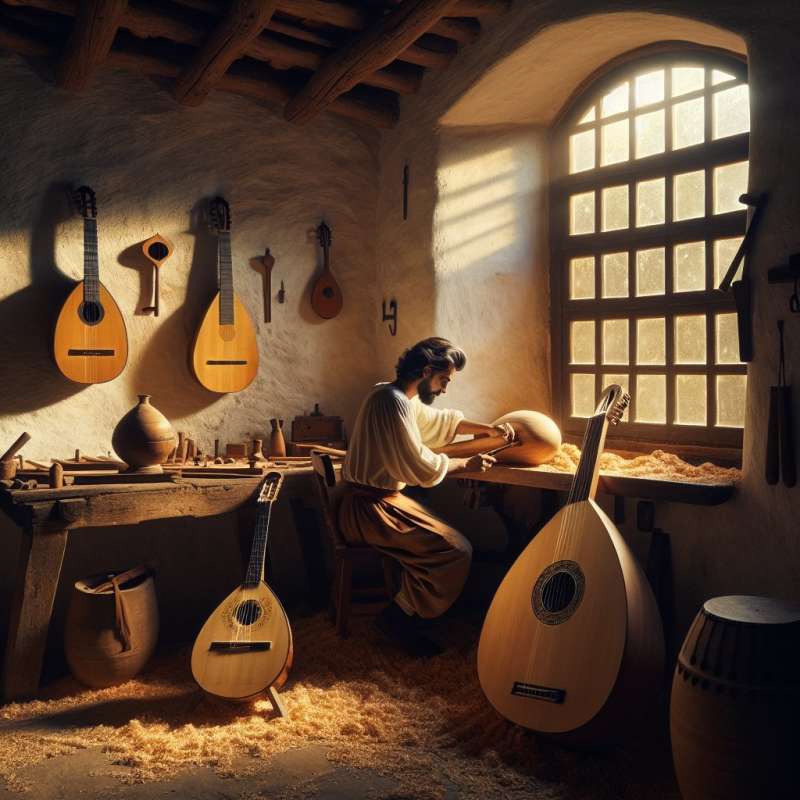
Guitar Origins Unveiled
The guitar's ancestors date back to 15th-century Spain, evolving from earlier stringed instruments like the lute. Its creation is attributed to the influence of Arabic lute called 'Oud'.
Unique Tonewoods Impact
Guitars are made from diverse 'tonewoods', each affecting sound. Spruce offers clarity, mahogany emphasizes warmth, and rosewood enriches resonance, crafting the guitar's unique voice.
Fingerstyle Versatility
Fingerstyle technique, using fingers instead of a pick, varies tone and texture. It's rooted in classical guitar but spans genres, each style articulated by distinct finger patterns.
Temperament Tuning Revelation
Guitar tuning isn't mathematically perfect. Standard tuning uses 'equal temperament' to slightly compromise each note, allowing for versatile playing in all keys without dissonance.
Vibrato's Expressive Power
Vibrato isn't just wiggling a string. It's a nuanced skill that adds emotion to notes. The controlled pitch variation technique has been refined across eras, enhancing expressivity.
Harmonics: Hidden Notes
Natural harmonics are 'hidden' notes, produced by lightly touching strings at specific points. These bell-like tones, found at frets 5, 7, and 12, are integral in diverse compositions.
Innovative Alternate Tunings
Alternate tunings redefine guitar's potential. 'DADGAD' and 'Drop D' offer new chord voicings and resonances, inspiring genres from folk to heavy metal with their unique soundscapes.
What influenced the guitar's creation?
Spanish lute evolution
Arabic 'Oud' instrument
15th-century craftsman
Company